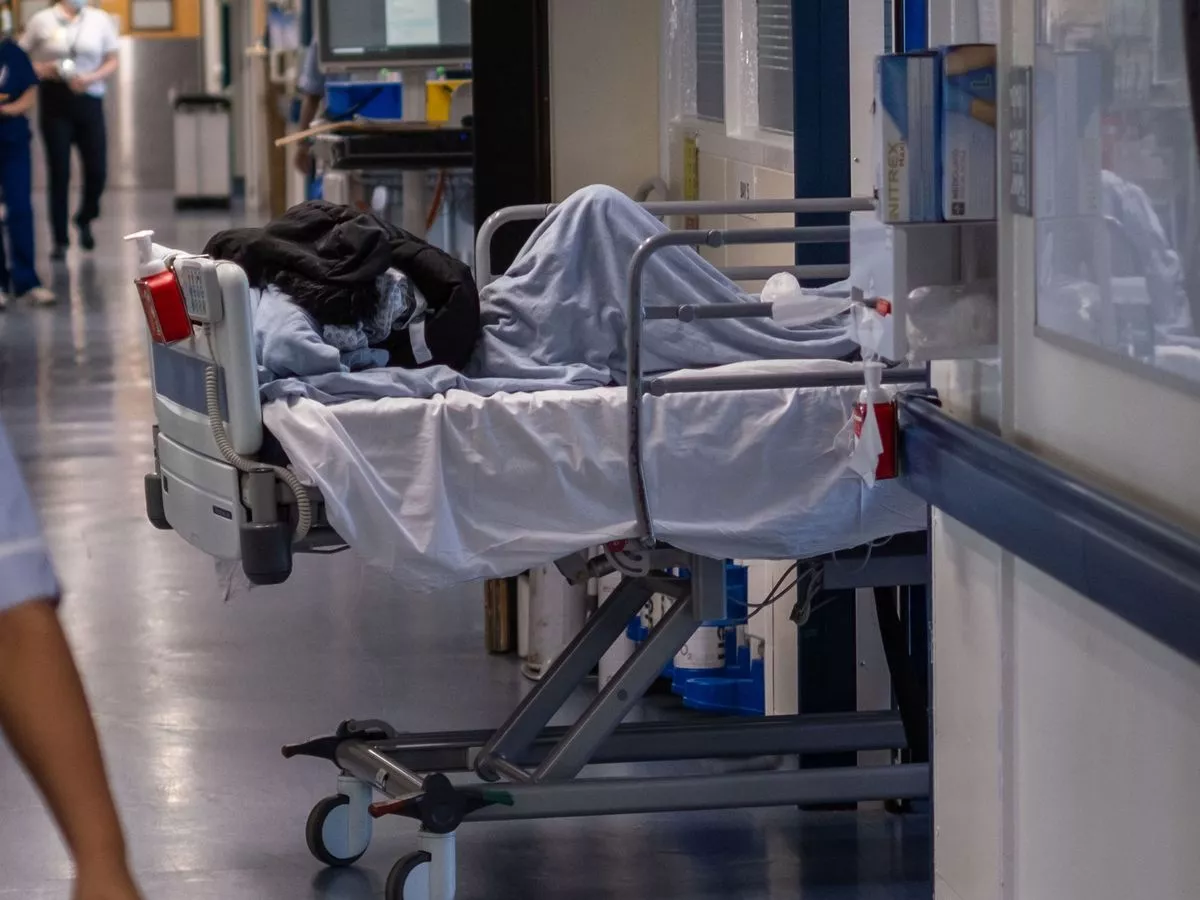Copyright mirror

Almost one in five patients in A&Es were being cared for in trolleys or chairs in England this summer, a grim new survey shows today. Research by the Royal College of Emergency Medicine, which has branded corridor care a "source of national shame", said the issue is putting lives at risk. The organisation polled clinical leads who oversee A&Es to capture a snapshot of the problem. Showing the immense strain the NHS is under, it found 19% of patients were being treated on trolleys or chairs in the corridors. Over a third - 34% - of respondents also had patients being cared for in ambulances outside their departments. A further 78% said they felt patients were coming into harm in their department due to the quality of care that could be delivered under the conditions. In one testimony to the RCEM, a patient said: “Corridor care has affected my confidence. I would think twice about going to A&E again unless it was absolutely unavoidable. The experience of being left on a corridor made me feel forgotten and vulnerable. I worry that if I went back, I might not be treated in a timely or safe way.” The Royal College of Emergency Medicine compiled the research for the All-Party Parliamentary Group (APPG) on Emergency Care. Public polling by Ispsos for the APPG also found 58% of people are not confident their A&E would provide a timely service. It follows another report by Age UK last month which found elderly patients were left watching others die as they waited for hours on hospital corridors. Dr Ian Higginson, President of The Royal College of Emergency Medicine said: “This report reveals the reality of so-called ‘corridor care’ in England. Put simply – it’s a source of national shame." He added: “Every day, patients are counting the hours they have been in ED, on trolleys in corridors, on chairs in unsuitable spaces, or simply in any available spot. Emergency Care never used to look like this. It’s incredibly disheartening for those working in our departments, who are doing everything they can to provide care under these conditions – and even more so for the patients through no fault of their own. It's distressing, undignified, and it’s putting lives at risk." Labour MP Rosena Allin-Khan, who works as an emergency doctor and chairs the APPG, said patients across the country are being let down. She said: "It is unsafe, undignified, and symptomatic of an NHS that is stretched, working desperately to support patients but struggling to cope with demand. "As an A&E doctor, I know my colleagues across the NHS work tirelessly for their patients. Staff are defined by their dedication, empathy and steadfast commitment to those in their care. In Westminster, we need to match their resolve, support frontline staff and give the NHS the resources it needs so that it is always there, free at the point of use, when we need it." Responding to the research, Royal College of Nursing's General Secretary Professor Nicola Ranger said:“Emergency departments should be places of safety for those in crisis, but this report shows they have become places of prolonged and unnecessary suffering. "It breaks the hearts of nursing staff and doctors that patients are lining corridors, waiting hours to be seen. But the truth is staff face an impossible task, with too few of them and demand surging. It’s incredibly worrying that care standards have fallen so far that so many no longer expect to be treated in a clinically appropriate space. That should send shockwaves through government. "We also know that corridor care is not confined to emergency departments, with patients being placed on chairs, trollies and in side-rooms right across hospitals and community services becoming increasingly overwhelmed. “More than 18 months ago, we declared a corridor care national emergency with nursing staff struggling to keep patients safe in shocking conditions. With little sign of improvement, and with flu rates rising, I fear a catastrophe on our wards this winter." A Department of Health and Social Care spokeswoman said: “No one should receive care in a corridor in a chair or trolley - it is unacceptable and undignified. We are determined to end this, which is why we’re publishing corridor waiting figures so we can take the steps needed to eradicate it from our health service. Sunlight is the best disinfectant to stop this practise." They added: "This winter, we are investing £450 million in urgent and emergency care centres, buying 500 ambulances, building 40 mental health crisis centres, and giving NHS leaders more power to deliver local solutions. On top of this, we are ramping up activity of vital vaccinations, to ensure you and your loved ones stay protected from flu and other diseases. Together, we can ensure the NHS is there when you need it.”



